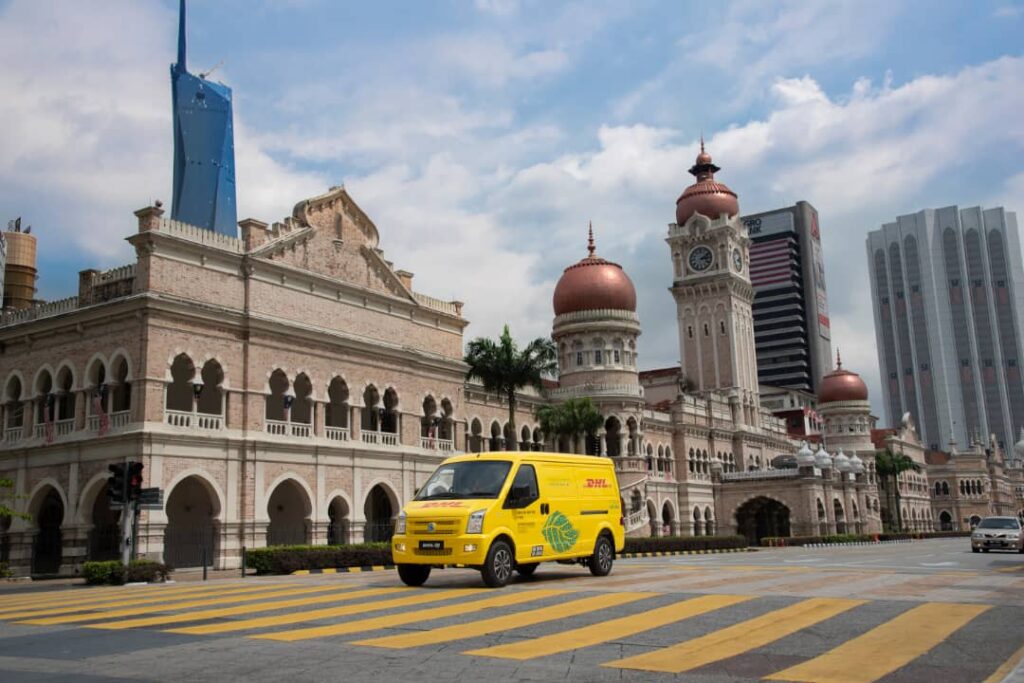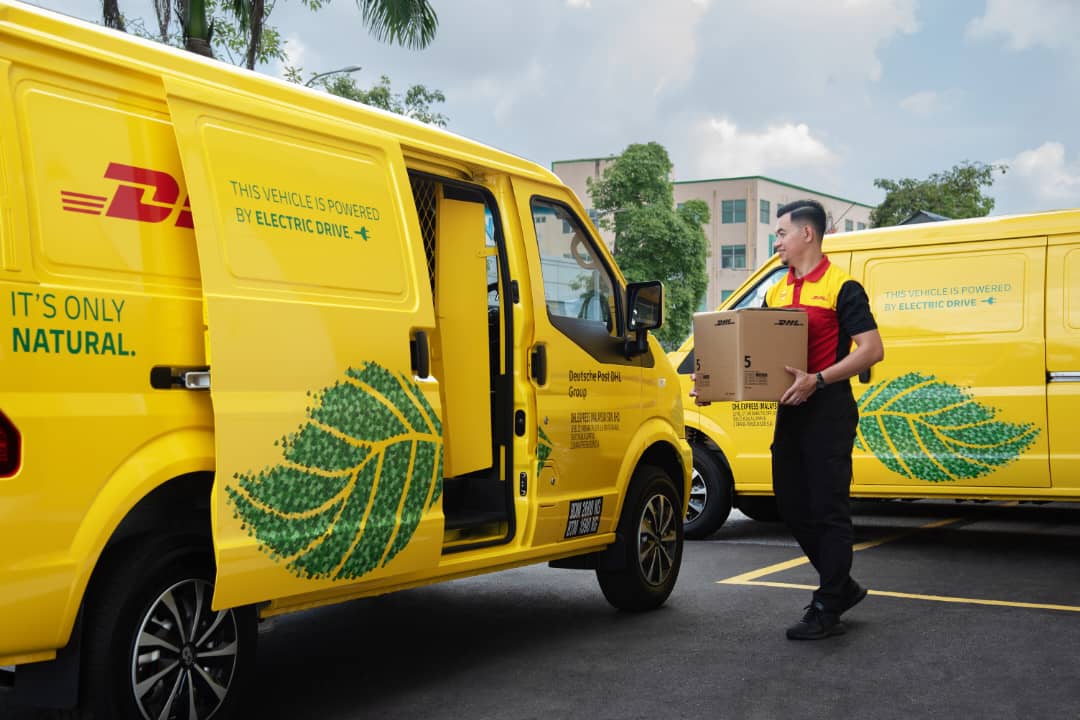Going Green and being sustainable is all the rage now as corporations continue to find their footing in a market where consumers continue to look for more sustainable goods and services. While there have been many companies who have been boasting about their “green” efforts, not many have done anything tangible or impactful. In Malaysia, DHL is joining the ranks of those who have tangibly implemented policies and followed through. The company will be deploying electric vehicles (EVs) for their last-mile deliveries starting in October 2022.
DHL will be kicking off their sustainability efforts with an initial deployment of 6 electric vans in the Kuala Lumpur and Selangor regions. By 2023, this number will be increased to 61 EVs deployed nationwide. The deployment of these vehicles will undoubtedly go a long way in their efforts to become more sustainable and reduce their carbon footprint in Malaysia. DHL Malaysia is targeting to have 60% of its fleet be EVs by 2050 with a shorter-term goal of 30% of its fleet by 2024.

The EV being deployed by DHL is the CAM EC35. This van has about 4.8m3 of cargo space with a payload of more than 1 ton. The CAM EC35 is rated for a running distance of about 266km on a single charge of its 38.7kWh battery. According to DHL, the company has optimized its delivery routes to ensure that the vans will be able to complete deliveries efficiently within a single charge. Of course, the EV35 can be charged overnight (8 hours) for a complete charge and, if needed, can be fully charged with a DC fast charger in 2.5 hours.
When asked about the impacts of fast charging on the battery itself, representatives from CAM confirm that fast charging will have minimal impact on the battery itself. They also emphasized the 5-year warranty for the vehicle and reiterated the durability of the CAM EV35.
The deployment of the CAM35 EVs into their Malaysian fleet is the latest effort by DHL in their efforts to become a sustainable company by 2050. However, its a big step in their efforts to greenify their operations by 2030 and reduce their carbon footprint from 33MT to 29MT in the same timeframe.
This isn’t the first step that DHL has implemented to go green. In fact, if their international track record is anything to go by, we can expect to see them adopt more technologies in the near future to become more sustainable. In Malaysia alone, the company has accelerated their sustainability journey with warehouse solutions and logistics technologies powered by AI and cloud computing with partners like AWS which allow them to minimise energy consumption and maximise efficiency.






